• Watch Weekly journalists discuss this issue on an episode of "Behind the Headlines."
---
Stanford University's graduation season typically brings flush times to the Cardinal Hotel, with guests booking rooms at the downtown Palo Alto hotel months in advance.
Last year, however, the hotel's general manager, Stephanie Wansek, witnessed a strange, new phenomenon: vacancies. This year, it happened again, Wansek told the Weekly.
"Normally, in my 20 years here, we had been sold out every year by March or April," Wansek said.
Other hotel executives also have seen demand cool off, according to Wansek. So when the City Council began to float the idea of raising the city's hotel tax (formally known as the transient-occupancy tax, or TOT) for the third time in 11 years, the move caught their attention. Since then, the group of hotel executives -- which includes members from the Cardinal, Westin, Sheraton, Dinah's Garden Hotel and Zen Hotel -- have been meeting regularly to talk about Measure E, which would raise the transient-occupancy-tax rate from 14 percent to 15.5 percent.
"Everybody around the table said their occupancy is off -- is either flattening or down," Wansek said.
Palo Alto isn't the only city looking to move ahead with a hotel-tax hike in November. Los Altos voters will consider raising their city's TOT rate from 11 percent to 14 percent; in Morgan Hill, voters will weigh in on increasing it from 10 percent to 11 percent.
There is a reason why hiking the hotel tax is such a popular proposition. Voters are far more likely to support tax increases if the costs are borne by out-of-town guests -- a long-held truism that was confirmed by a poll the city of Palo Alto commissioned last spring. Conducted by the firm FM3, the poll indicated more than 60 percent of voters would likely support a higher hotel tax, well above the simple majority required. By contrast, only 40 percent indicated that they would support a parcel tax to pay for the city's infrastructure projects and only 27 percent favored a sales-tax increase. In short, raising the hotel tax is simply the easiest thing for a revenue-hungry city to do.
But while Palo Alto has company in pursuing a hotel-tax increase, the city is also in some ways heading into uncharted territory. If Measure E is approved, Palo Alto would have the highest transient-occupancy-tax rate in California, notwithstanding the council's assertions to the contrary.
The measure landed on the ballot by a 6-3 vote on June 18, with council members Karen Holman, Lydia Kou and Greg Tanaka dissenting. Tanaka categorically opposed moving ahead with the measure and lobbied for scaling down the city's infrastructure ambitions instead. Holman and Kou were also cool to the idea of adopting the highest rate in the state, though they ultimately supported Mayor Liz Kniss' proposal to increase the tax to 15.5 percent.
Even Kniss wasn't too thrilled about the measure, saying it would be "awkward" for Palo Alto to become the state leader in this respect.
"It's kind of a painless thing for the city to do," Kniss said, "which probably isn't the best reason for the city to do it."
Councilman Greg Scharff and Vice Mayor Eric Filseth had no such reservations. Each lobbied for 16 percent, with Scharff pointing to Healdsburg, a city that he said already has a 16 percent rate. Healdsburg's rate is, in fact, 14 percent, though the city also charges a 2 percent assessment for the Healdsburg Tourism Improvement District, which supports the tourism business. Palo Alto has no such assessment, which means local hotels, unlike those in Healdsburg, can't expect to directly benefit from the taxes they collect and remit to the city.
Lack of clarity over what it would fund
Palo Alto's hotel-tax ordinance also would have fewer restrictions than Healdsburg's, which requires the first 10 percent of all hotel-tax proceeds to be put in a special fund for community services and the next 2 percent to be dedicated to affordable housing.
While Palo Alto council members have given their assurances that the funds would be spent on projects in the city's 2014 infrastructure plan, the proposed tax hike has no legal restrictions.
The 2014 list, which constitutes the council's formally adopted priorities, includes a new public-safety building, new garages in downtown and on California Avenue, two rebuilt fire stations, permanent upgrades to the Charleston-Arastradero corridor and a new bike bridge over U.S. Highway 101. Earlier this year, Public Works staff indicated that the plan has a $56 million funding shortfall, triggering renewed discussion of raising taxes.
Scharff and others have asserted that increasing the hotel tax in 2018 is necessary to finish the job that the city began in 2014, when it last raised hotel taxes. The council promised the voters in 2014 that it would construct the projects on the list, Scharff said at the June 4 meeting, the full council's first of three deliberations on the subject this summer. Now, he said, is the time to finish the job.
"Looking at this and going forward, I think it's really hard to go ahead and say, 'We're not going to do it,'" Scharff said.
But if the intent of Measure E is to complete the 2014 infrastructure plan, the actual ballot language doesn't reflect it. Missing is any mention of the two parking garages or the bike bridge over Highway 101, apart from general language about "improving pedestrian and bicyclist safety." Nor does it specifically call out the new public-safety building, which at $96 million is by far the most expensive and urgent project on the list.
Instead, it states that the tax increase would be used for "vital city services such as ensuring modern, stable 911 emergency communications, earthquake-safe fire stations and emergency command center." The ballot language also alludes to proceeds being used for "maintaining city streets and sidewalks" (which have nothing to do with the 2014 plan) and "other city services" (which can mean pretty much anything at all).
Nor does the ballot mention any newer projects -- those that were not considered in 2014 but that have recently been added to the council's wish list. In some cases, these are literally pet projects, such as the the $3.4 million that council members plan to spend to fix up the animal shelter as part of its new partnership with the nonprofit Pets In Need and the $4.9 million that the council pledged to help with the renovation of the Junior Museum and Zoo.
The council also hopes to expand Boulware Park by buying an adjoining parcel owned by AT&T, an idea raised over the course of the candid late-night discussion on June 18 in which Scharff, Filseth and Kou all talked about their desire to buy the parkland.
The lack of clarity in Measure E has peeved Tanaka, who's likened the ballot language to "fear-mongering" and suggested that the city actually spell out the projects the tax would fund.
"Why would we see something totally different in the ballot language than we've been talking about all this time for the TOT?" Tanaka asked at the July 30 meeting.
Would Measure E hurt hotels?
Even if the measure's language remains vague, the council majority is confident that the tax hike will pass. Most council members also believe that it will not hurt local hotels, much less the broader business climate.
On June 4, Scharff dismissed concerns from hotel executives and local business groups -- including the Palo Alto Chamber of Commerce and the Palo Alto Downtown Business and Professional Association, which alluded in a letter to "disruptive and challenging market trends" and asserted adding another tax "will hurt this particular industry and its ripple effect will hurt others."
"They are really the same arguments that were made in 2014, that if we go from a 12 percent to a 14 percent tax, this is going to have an adverse effect," Scharff said. "In fact, it had no effect whatsoever. Hotel rates went up and occupancy rates went up."
The city's statistics only partially support his assertion. To be sure, the city has seen a sharp and consistent growth in revenues since 2014, when it raised its transient-occupancy-tax rate from 12 percent to 14 percent. Since that time, Palo Alto's annual receipts from hotel taxes have roughly doubled from $12.3 million in fiscal year 2014 to a projected $24.5 million in the current year. Room rates over the same period climbed from $209 per night to $265 per night.
At the same time, the occupancy rate at local hotels has fallen from 79.6 percent in 2013 and 79 percent in 2014 to a projected 77.5 percent in 2018, according to a report from the city's Administrative Services Department.
Hotel executives fear this is the harbinger of a cooling economy. Wansek noted that while hotel owners are very concerned about their own businesses, they are also worried that the tax would have a "trickle-down effect" on the rest of the community. Fewer people staying at hotels would mean fewer people visiting local restaurants, shopping at local boutiques and sticking around for happy hour at local bars.
She and other hotel executives also reject the council's assertion that the additional tax on the hotel bill would be negligible. Filseth likened Measure E's costs to the price of a cup of coffee, a comparison that is also included in the official argument in favor of Measure E.
The "cup of coffee" impact comparison, Wansek said, only makes sense when applied to tourists and other short-term visitors. It would apply, she said, if the typical hotel guest were an aunt visiting for the weekend. It's less applicable for giant corporate clients whose travel managers are booking rooms in bulk and who can easily make the switch to a hotels in a city like Mountain View, where the transient-occupancy-tax rate is at 10 percent, or to Menlo Park, where the rate is 12 percent.
And unlike Anaheim, which can dependably rely on an endless supply of families itching to see Mickey and Goofy (and which, for the moment at least, leads the state with a 15 percent hotel-tax rate), Palo Alto is by-and-large a corporate town. The bulk of the visitors, Wansek said, are here on business or to visit Stanford. If the tax rate is too high, they can easily book rooms in a neighboring city, hotel executives say.
"The real risk of having the highest rate in the state is that it's not just a competitive disadvantage for the hotels, it becomes a competitive disadvantage for the city," said Peter Hillan, whose firm, Brannan Public Affairs, is working with the hotel industry to oppose the hotel-tax increase. "You can go to Menlo Park and still have reasonably close access to all things in Palo Alto."
Hotel owners are also concerned about the city's approach to changing the policy. Wansek and others raised concerns about the city leaders' lack of outreach to the hotel industry -- a flaw that officials tried to correct with a last-minute meeting with a group of hotel executives in the spring.
She's not the only one who feels this way. Ricardo Berrospi, general manager of Zen Hotel in south Palo Alto, told the council at its June 4 meeting that he was expecting the city to really "explore" the impacts of the new measure before moving ahead with placing it on the ballot.
"Exploring to me means a little bit more than just trying to see what kinds of questions are more likely to be approved," Berrospi said. "Exploring means to reach out to stakeholders, to reach out to hotels and hear their concerns, to analyze what could be the potential consequences of the measure. I think the council is placing too much focus on just trying to see what the polls (show) can be approved."
Assertions, corrections and alternate ideas
The official argument opposing Measure E also has a few inaccuracies. It erroneously calls Measure E Palo Alto's "third transient-occupancy-tax increase in 10 years" (in fact, before 2014, the last time the city raised its hotel tax was 2007, which is 11 years ago) and states that Menlo Park and Mountain View "have not raised their transient-occupancy tax in the last decade ." (Menlo Park did raise its hotel-rate from 10 percent to 12 percent in 2012, when voters approved Measure K.)
But its main assertion, that the ballot language is driven by carefully conducted polls, is by-and-large true, as City Manager James Keene acknowledged at the council's July 30 meeting. For the council majority, this method makes perfect sense; they want the measure to pass. From the view of Measure E opponents, these methods "violate the trust that residents place in their elected officials to act ethically and in good faith," as the argument states,
Some hoteliers have proposed alternative methods to raise funds for needed projects. John Hutar, general manager of Dinah's Garden Hotel on El Camino Real, suggested that rather than raising the hotel tax yet again, the city should focus its efforts on collecting the revenues it's owned from Airbnb rentals. Based on public listings, Hutar estimated that the city could collect about $5.3 million in transient-occupancy-tax contributions; it currently only collects less than $1 million from the residential rentals.
"There's $4.3 million in play here. ... This is a big business, and it deserves your oversight," Hutar told the council on June 4.
The city estimates that Measure E would add about $2.55 million in annual revenues to the city's coffers. Hillan pointed to the size of the city's infrastructure backlog as well as other financial challenges -- most notably, the growing pension backlog -- and suggested that even if the hotel-tax passes, it is unlikely to make a huge difference on infrastructure.
"Our real question is, 'Where does it end?' They will have to go after the citizens to raise that amount of money at some point," Hillan said. "Will they come back two years later to say they have to raise the rate by another 1.5 percent? Might was well just shutter everybody at that point."
Editor's note: This story had originally listed Hotel Parmani as one of the hotels participating in meetings to oppose Measure E. It is not.
UPDATE: Read the Weekly's editorial on Measure E: Yes on Measure E hotel-tax increase (Sept. 21)
For complete 2018 election information, check out the Palo Alto voters' guide.
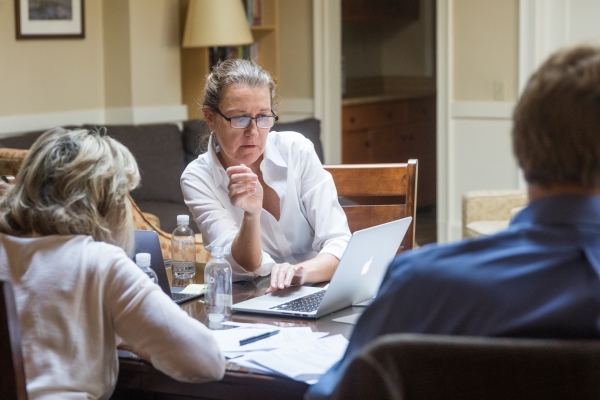
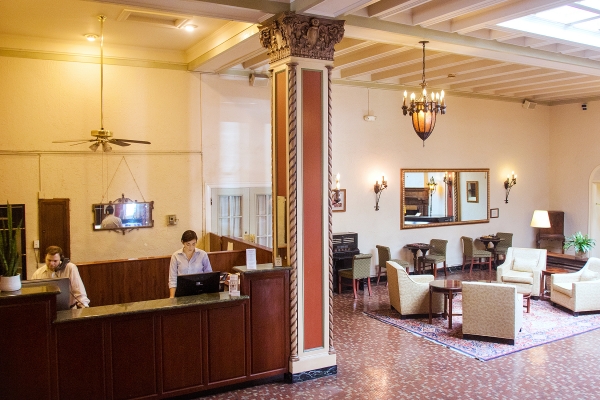
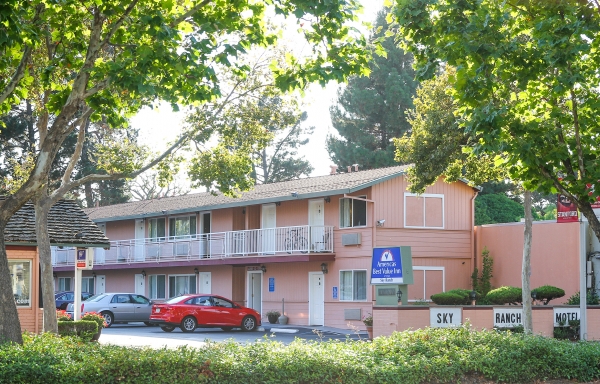
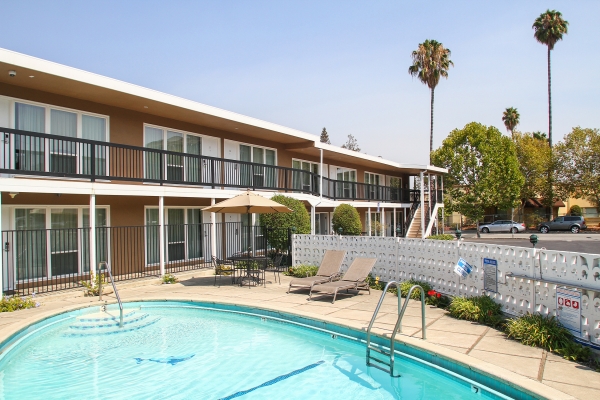
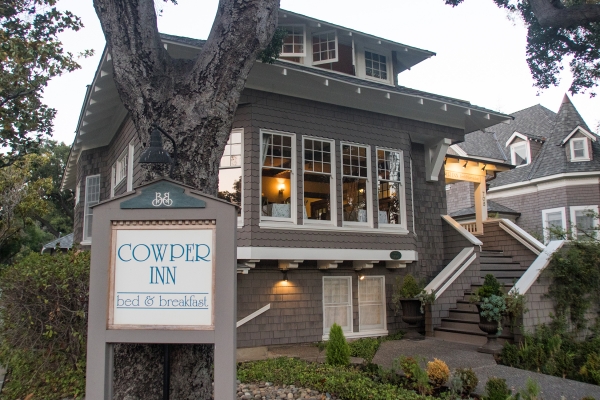
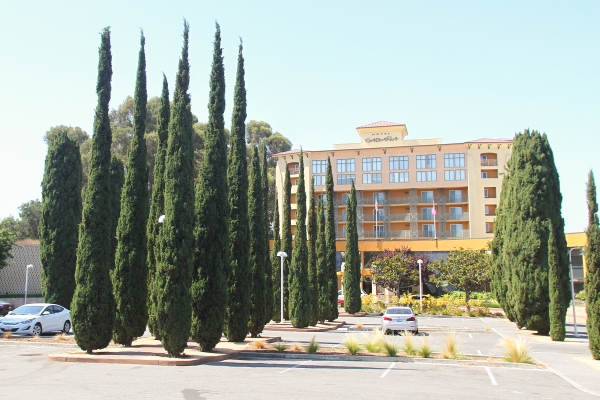
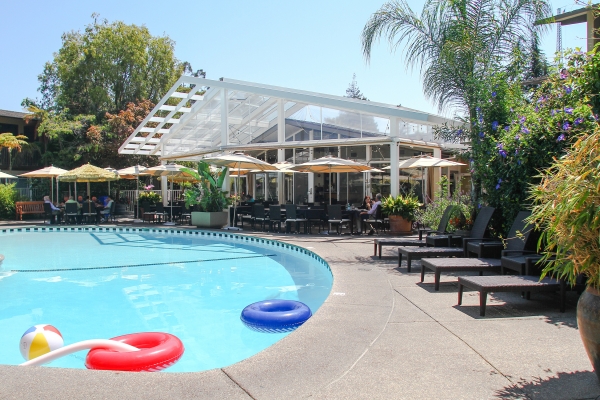
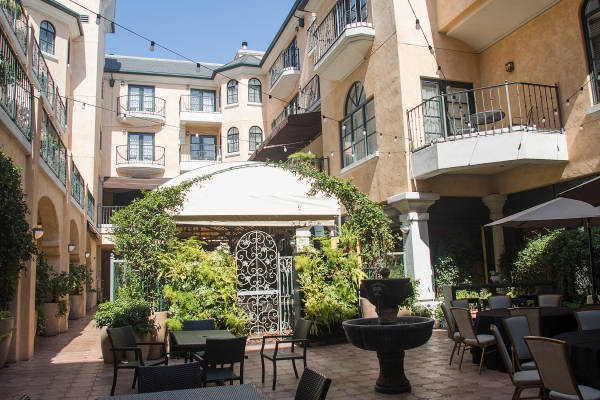
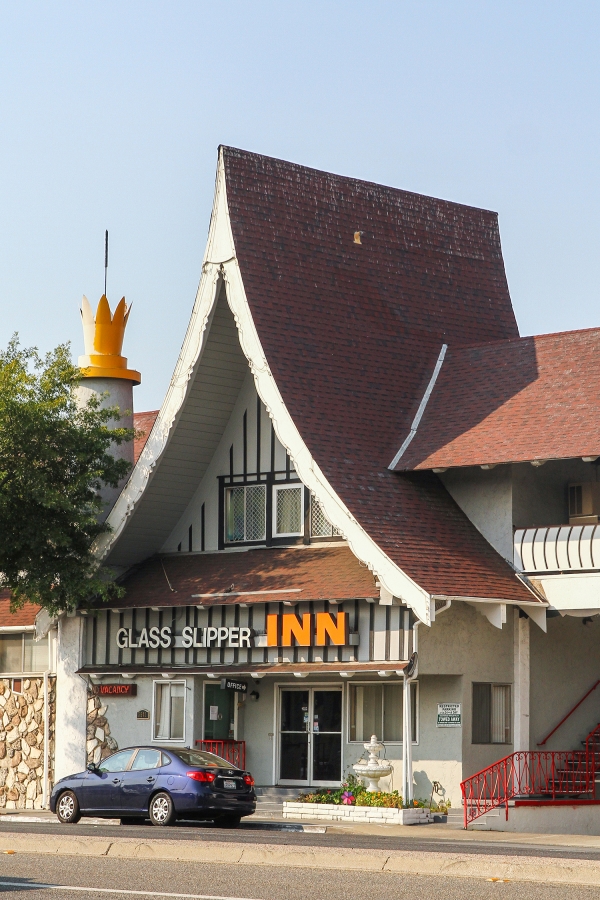
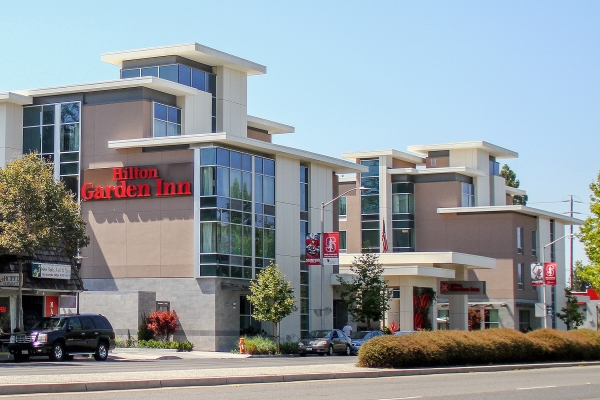
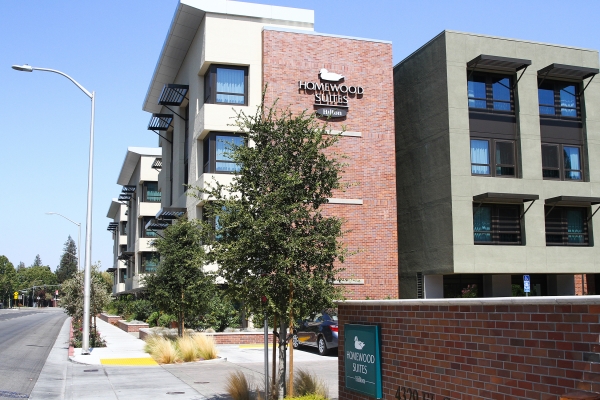
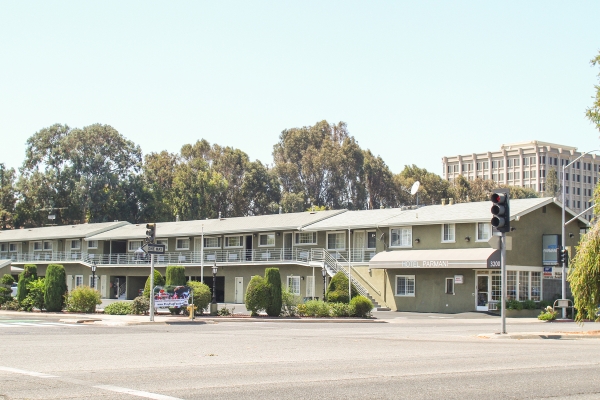
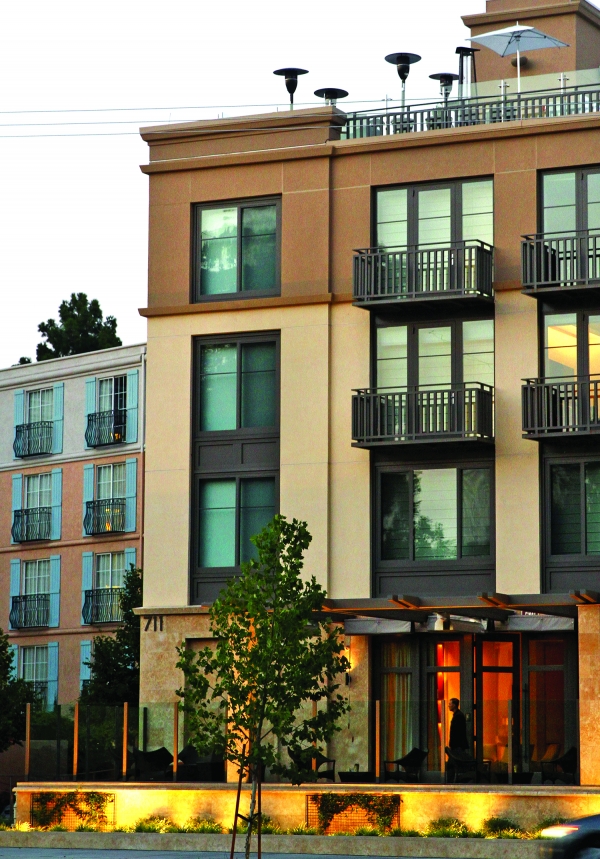
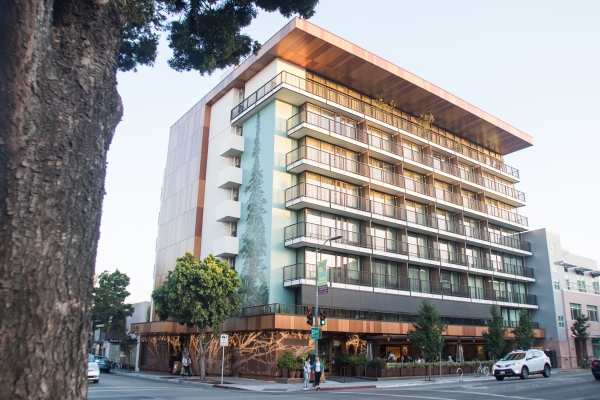
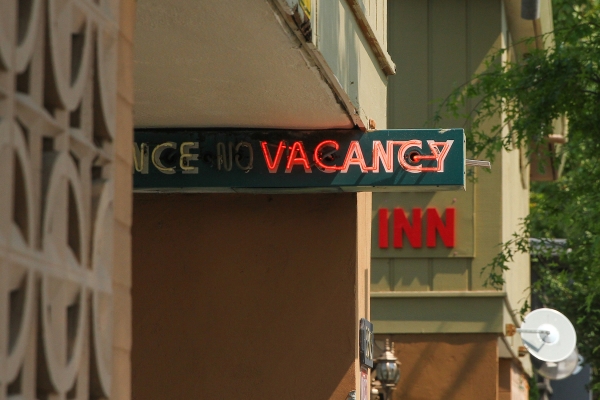


Comments
Crescent Park
on Sep 7, 2018 at 9:21 am
on Sep 7, 2018 at 9:21 am
CA sales tax + hotel tax adds roughly 20% to an average lodging bill. A significant add-on cost for some while no big deal for others (depending on one's pocketbook and individual affordability factors).
Many businesses resent being tax collectors for municipalities because it amounts to little more than additional billing & bookeeping procedures that offer no actual advantages to them over the long run.
If the purpose of increasing PA hotel taxes is purely abstract with no clear-cut objectives in sight, it should be rejected.
Old Palo Alto
on Sep 7, 2018 at 9:31 am
on Sep 7, 2018 at 9:31 am
If hotels are concerned about their occupancy rates, I have a very simple solution - LOWER YOUR RATES. If you think 1.5% additional on a hotel bill will discourage anyone, you are like Chicken Little saying the sky is falling. This weekend, most everyone is fully booked - though the Four Seasons has rooms for $460 and the Clement has a few rooms for $675. You can get a room at the Hilton Garden Inn for a the very low $289. You think $6 more a night will clear out and 'shutter' the Four Seasons? Nope.
The PR mavens and the hotel owners have only two interests - special zoning concessions to keep building more and more in this City, and figuring out ways to hamstring their new competitors - the AirBnB and VRBO's of the world.
The Weekly - since they take so much advertising from these people - is obviously giving them a voice to make them feel good - but we should really disregard their crocodile tears.
We can have a reasonable discussion about the City's Infrastructure Spending and whether it is wise - but that frankly is a completely separate discussion.
Crescent Park
on Sep 7, 2018 at 9:54 am
on Sep 7, 2018 at 9:54 am
QUOTE: If hotels are concerned about their occupancy rates, I have a very simple solution - LOWER YOUR RATES.
It doesn't work that way. When the lodging demands are up, the motels/hotels charge more & during slow periods, they charge less.
It's essentially 'cashing-in' during opportune timeframes.
In PA & surrounding areas, most of the high lodging demands occur during the midweek to accomodate out-of towners attending business meetings & in-house high-tech conferences. During the weekends, lodging demands are lower & this is reflected in the lower motel/hotel prices.
Reason...PA is not a resort area with typical high/low seasons & weekend tourists.
It is a hub for business interests & high-tech industries.
Barron Park
on Sep 7, 2018 at 10:00 am
on Sep 7, 2018 at 10:00 am
I am all for having a modernized city that spends their coffers deliberately and with the interest of our community at the forefront. But I cannot sympathize with our current city council and their tactics. I was polled and the questions were VERY specific. If they are genuine about sticking to our infrastructure plans, why didn't they make ANY tax increase (hotel, soda, sales, etc) specific for that purpose? We can't continue to let them trick us. Tanaka said it right, fearmongering language won't work this time with me.
Old Palo Alto
on Sep 7, 2018 at 10:12 am
on Sep 7, 2018 at 10:12 am
R Davis - Having lived here in Palo Alto for 30 years and served on the Palo Alto Planning Commission and been involved with many high tech companies, I know very well how the hotel industry in Silicon Valley works. Your comments above just reinforce my point. Hotels do take complete advantage when times are good -they jack up the rates as much as they can. Hotel prices here are insane. The issue is not the hotel tax, or the sales tax, the issue is the core rate these hotels want to charge. You think $460 a night for a weekend is a cheap rate? I don't.
I do not begrudge them making money. I do take issue with the crocodile tears here - "another 1.5% and I think we might just need to close the doors", says the big, bag PR guy. The City needs money to pay for the infrastructure and other costs of the insane growth we have experienced, and that the hotels benefit from. While I am not a fan on unnecessary taxation, I am a fan of honesty - and none of the hotels in this town are hurting right now in any way, and so they should frankly be pretty high up on the list of potential suspects for additional revenue generation.
In some ways, this is an issue barely worth commenting on, it is so obvious and transparent to most people. But in the days of fake news and people trying to take advantage of publishers, newspapers, and online comments, I thought I would jump in and be clear. Not much empathy for the hotel owners who are gouging us at the moment since times are good.
Come back when your occupancy rates are 60% and not 85-90%.
Crescent Park
on Sep 7, 2018 at 10:24 am
on Sep 7, 2018 at 10:24 am
@Bill Glazier - QUOTE "If hotels are concerned about their occupancy rates, I have a very simple solution - LOWER YOUR RATES"
I am not a math wiz, but if the hotels lower their rates to have the same occupancy as last year (even when the city's own stats show a trend of occupancy going down)that will not create any additional tax revenue to the city. Right?
Crescent Park
on Sep 7, 2018 at 10:33 am
on Sep 7, 2018 at 10:33 am
QUOTE: Hotels do take complete advantage when times are good -they jack up the rates as much as they can. Hotel prices here are insane. The issue is not the hotel tax, or the sales tax, the issue is the core rate these hotels want to charge. You think $460 a night for a weekend is a cheap rate? I don't.
Tending to agree with you Bill as the add-on taxes are reflective of the overall lodging bill.
When ocupancy demands are high, even a stay at a 1-star motel can run close to $300.00 in the midpeninsula. I'm not defending the innkeepers by any means but perhaps they are 'compensating' for the slower periods.
Personally speaking, I do not believe in paying Mark Hopkins prices for Motel 6 accomodations regardless of the season or demand.
Registered user
Embarcadero Oaks/Leland
on Sep 7, 2018 at 10:39 am
Registered user
on Sep 7, 2018 at 10:39 am
Just vote no. Palo Alto is clueless about spending our money responsibly.
Midtown
on Sep 7, 2018 at 11:20 am
on Sep 7, 2018 at 11:20 am
I am voting No because of the Ross Road debacle.
Another Palo Alto neighborhood
on Sep 7, 2018 at 1:19 pm
on Sep 7, 2018 at 1:19 pm
I am against taxing the hotels more because it's just crack for the pro-overdevelopment City Councilmembers who want to find another reason to think they can care less about residents.
Also this town has a bad history with coming through on promises made for why a tax should be raised - the most recent school district tax in which they went on about class sizes and student mental health in the midst of a suicide crisis was quickly sucked away by raises after recent raises, including "me too" raises to overpaid underperforming administrators. The last school bond that the Superintendent promised would completely rehabilitate all of our school sites somehow became a few fancy buildings that could have been purchased for way less than was raised and a lot of really super expensive superficial hardscape and paint. Try asking about the purpose of the bond and what you hear now will be completely unrecognizable relative to what is promised in writing and especially what the superintendent then said verbally to the public. And now they are going to ask for more. Do not expect any tax that does not have a lockbox specific promise for where the money to go to be spent the way it is promised in the elections, whether it is a local election or elsewhere. This is coming from a liberal voter.
My house is too small so relatives always stay in hotels, so I know very well why vacancies are up in town. The price of hotels has gone through the roof in recent years. Citing averages does not tell the story because the hotels lower the rates on the weekends, but most people who want to visit cannot restrict their stays to just those nights. Any reduction in average occupancy rates is easily explained by a disproportionate reliance on business travelers during the week, loss of leisure visitors including over weekends because prices always go up during the week, and commensurate stratospheric prices that ordinary people can no longer pay. There are no longer any bargains during the week, period. Even the most yucky hotel can charge $300/night during the week. This increase has gone hand in hand with way more hotel spaces added from all the new development, and more will be added soon. This is not a problem with decreasing demand for hotel rooms in the broader area, it is a whole segment of customers being driven elsewhere or away entirely by stratospheric prices during the week here by hotels chasing business customers, and has been driven by opportunism not from the demand for hotel rooms.
I never used to have to try to place relatives in far away hotels, but I have for the last few years. Even using hotel rewards has meant going to Sunnyvale or further. It's gotten to the point where I don't even take looking at local hotels seriously anymore. If you find a good rate for a weekend stay, it inevitably goes up through the roof come Sunday night. The hotels might do themselves some good in the long run by running specials for locals so they don't just write off referring family and friends to those places.
Or they don't think a new hotel tax given how much more hotels are charging is overdue.
This is just the next step after the City Council allowed the stretch of El Camino between San Antonio and Arastradero to become a hotel monoculture. What do they care, it's not their side of town.
Registered user
Evergreen Park
on Sep 7, 2018 at 1:41 pm
Registered user
on Sep 7, 2018 at 1:41 pm
Airbnb offers so many opportunities for visitors, including the houses that are kept only for Airbnb as is the house behind mind. Until a month ago, the 4 bedroom home next to me was also being used as a Airbnb rental at $500 a night, with daily maid service. What a bargain for families compared to the cost of 4 rooms at a local hotel. It's not surprising occupancy at local hotels has dropped when families come for Stanford related events.
Barron Park
on Sep 7, 2018 at 2:22 pm
on Sep 7, 2018 at 2:22 pm
...Just vote no. Palo Alto is clueless about spending our money responsibly.
...This is just the next step after the City Council allowed the stretch of El Camino between San Antonio and Arastradero to become a hotel monoculture.
...none of the hotels in this town are hurting right now in any way,
...Also this town has a bad history with coming through on promises made for why a tax should be raised
Need we say more?
College Terrace
on Sep 7, 2018 at 2:22 pm
on Sep 7, 2018 at 2:22 pm
The USC Stanford game supports the Palo Alto Hotel owners' position. Friends from Southern California limited their selection of a hotel to Mountain View, Menlo Park and Sunnyvale based on the difference in cost associated with the Hotel Tax. So much for conjecture of no impact of the proposed increase by the Council majority.
This coupled with the lack of restriction of the projected tax proceeds for a specific purpose such as affordable housing or relief from traffic congestion (such as funding the eliminated Police Motor cycle Officers at a minimum) merits a "No" vote.
Barron Park
on Sep 7, 2018 at 2:42 pm
on Sep 7, 2018 at 2:42 pm
If you don't like the motel prices then go find a room somewhere else.
Registered user
Adobe-Meadow
on Sep 7, 2018 at 2:52 pm
Registered user
on Sep 7, 2018 at 2:52 pm
I'm still undecided on it, but my initial inclination is to vote against it. I know, and I've read all the comments of how motels/hotels gouge people during the good times...almost 100% occupancy times...with high rates. I have no skin in the game because I own my home, but all the clamoring CC is doing to extract money from out of town visitors, to pay for bad projects and retirement benefits, just isn't right.
If they think we are such a great community to live in, then they should accept the fact that it takes the residents of this great community, to pay the bills.
Registered user
Embarcadero Oaks/Leland
on Sep 7, 2018 at 4:36 pm
Registered user
on Sep 7, 2018 at 4:36 pm
I was at the CC meeting where the hotel reps all expressed their shock that they had to learn about the proposed tax increase from the media, how "disappointed" they were to not have gotten any type of courtesy or fact-finding call from the city. They were unanimous in opposing the increased tax.
Evidently you don't have to be a resident or a neighborhood to suffer PA's failed outreach.
Registered user
Duveneck/St. Francis
on Sep 7, 2018 at 4:46 pm
Registered user
on Sep 7, 2018 at 4:46 pm
This article reads like an editorial, not news reporting. I'm inclined to agree with Mr. Glazier. I read the Infrastructure Budget. While I would have preferred clearer ballot language, this money is earmarked to fund critical infrastructure projects we have needed for a long time. We need to get these projects funded and moving. The difference in added cost to a hotel room is less than a cup of cheap coffee. Let's get this done.
Old Palo Alto
on Sep 7, 2018 at 4:52 pm
on Sep 7, 2018 at 4:52 pm
The hotel rates are already too high here, and in the surrounding cities up and down the peninsula.
The larger companies might start offering rooms for their visitors.
It would be both cost saving and convenient.
Many already provide food service.
Regular visitors to our area (friends, family, tourists (I see fewer and fewer each year) have no other option but to stay with their friends, or look for a short term rental on the internet.
Downtown North
on Sep 7, 2018 at 5:00 pm
on Sep 7, 2018 at 5:00 pm
Will the $2.5M raised really make a dent in any of the infrastructure projects? I think even hotels know that funding these items are necessary. I suppose the point is what happens when the economy turns. You won’t get nearly the revenue you thought and will be left with higher occupancy tax with no provision to sunset the increase.
Why haven’t cities adopted dynamic taxation. Hire experts in lodging telling you where occupancy and rate trends are headed. Increase in the good times. Decrease as they see slowing.
People who want to be in Palo Alto will stay in Palo Alto, but in the aggregate, this has the potential to move rooms nights to neighboring cities. So far the discussion here for pro-Meausre E has focused on greedy hoteliers. Other cities’ hotels charge the same exorbitant rates.
Embarcadero Oaks/Leland
on Sep 7, 2018 at 6:02 pm
on Sep 7, 2018 at 6:02 pm
>>this money is earmarked to fund critical infrastructure projects we have needed for a long time. We need to get these projects funded and moving. The difference in added cost to a hotel room is less than a cup of cheap coffee. Let's get this done.
Define specific infrastructure projects & where you buy your coffee. Inquiring minds want to know.
Downtown North
on Sep 7, 2018 at 6:27 pm
on Sep 7, 2018 at 6:27 pm
Sadly, even in an educated community such as ours the power of messaging will rule the day. Framing issues is all that matters to a largely apathetic public. Even highly educated folks will get distracted into thinking this is about greedy hoteliers versus raising revenue for the city. The success of one is necessary to achieve the other. There are smarter ways to raise money but the residents, perhaps rightfully, don’t have any incentive to raise taxes on themselves to fund these infrastructure projects. Anyways, if anyone thinks this new revenue is going towards infrastructure, you’ve already been fooled. Think pensions and city staff salaries. The city has a major shortage of staff.
Crescent Park
on Sep 7, 2018 at 6:39 pm
on Sep 7, 2018 at 6:39 pm
QUOTE: Anyways, if anyone thinks this new revenue is going towards infrastructure, you’ve already been fooled. Think pensions and city staff salaries.
A good enough reason for a NO vote.
Embarcadero Oaks/Leland
on Sep 7, 2018 at 6:45 pm
on Sep 7, 2018 at 6:45 pm
> this money is earmarked to fund critical infrastructure projects we have needed for a long time. We need to get these projects funded and moving.
>> if anyone thinks this new revenue is going towards infrastructure, you’ve already been fooled. Think pensions and city staff salaries.
Infrastructure = pensions & city staff salaries? Most are already overpaid.
A good enough reason for another 'no' vote.
Registered user
Duveneck/St. Francis
on Sep 7, 2018 at 8:57 pm
Registered user
on Sep 7, 2018 at 8:57 pm
Of course, the slight reduction in occupancy rates has nothing whatsoever to do with high base room rates, a significant increase in the number of new hotel rooms in Palo Alto, and the increase in alternatives like AirBnB.
Incentive to stay in Palo Alto hotels when doing business in Palo Alto is high. Have you driven on the Peninsula? Time is money. Commute time of highly paid people has a price tag.
Ventura
on Sep 7, 2018 at 9:52 pm
on Sep 7, 2018 at 9:52 pm
The planning commission just reviewed a proposal for a new five (5) story hotel in South PA. Clearly there is enough demand that developers see it as profitable to build new hotels in the city. I'm generally not for more taxes, but for our city with grossly under-funded infrastructure, this seems like a reasonable proposal.
College Terrace
on Sep 8, 2018 at 7:17 am
on Sep 8, 2018 at 7:17 am
How a ballot measure is written is not accidental. Deliberately confusing language is often used to yield a certain vote. And vagueness is used to allow after-the-fact latitude that voters may not have intended to grant. Absent clear restrictions that the revenue from this tax can be spent ONLY on specific infrastructure projects leaves open the opportunity to use the funds for other purposes. Classic bait and switch. Proponents of this tax can obviously say whatever they want, but in the realm of politics and government, what good is a promise, really?
Downtown North
on Sep 8, 2018 at 7:55 am
on Sep 8, 2018 at 7:55 am
I have supported previous increases in the hotel tax, but I am almost certainly going to vote against this measure.
No, I don't have any sympathy for the hotel owners. I am simply disgusted by the city's intentional crafting of the ballot language to create a false and frightful message; that is, a lie.
In addition to years of financial and policy mismanagement and lack of concern for resident quality of life, we have witnessed many incidents suggesting nothing short of a complete breakdown in ethics at City Hall.
I won't endorse this behavior and encourage citizens to take every step necessary to restore integrity.
Embarcadero Oaks/Leland
on Sep 8, 2018 at 9:18 am
on Sep 8, 2018 at 9:18 am
> If you don't like the motel prices then go find a room somewhere else.
A typical motel/hotel operator view? Probably so.
>> No, I don't have any sympathy for the hotel owners.
A reasonable sentiment given the opening statement?
>>> I am simply disgusted by the city's intentional crafting of the ballot language to create a false and frightful message; that is, a lie.
>>> Deliberately confusing language is often used to yield a certain vote.
>>> if anyone thinks this new revenue is going towards infrastructure, you’ve already been fooled. Think pensions and city staff salaries.
I would imagine that most here get the real picture (with the possible exception of those proponents in favor of validating questionable 'infrastructure' expenditures).
Registered user
Crescent Park
on Sep 8, 2018 at 9:51 am
Registered user
on Sep 8, 2018 at 9:51 am
Moral of the story...if you are going to vote, strive to be an enlightened voter.
We've seen what eventually happens when people aren't.
another community
on Sep 8, 2018 at 3:07 pm
on Sep 8, 2018 at 3:07 pm
[Post removed.]
Crescent Park
on Sep 8, 2018 at 4:15 pm
on Sep 8, 2018 at 4:15 pm
[Post removed due to deletion of referenced comment.]
Another Palo Alto neighborhood
on Sep 8, 2018 at 5:20 pm
on Sep 8, 2018 at 5:20 pm
[Portion removed.]
If you know the local market, you know that prices dip dramatically during the weekend then any weekday they are higher because of business travelers. If you use Trivago to do a really thorough search for hotel rooms in Palo Alto, and pick a little ways from now in order to eliminate any short-term distortions -- and October isn't exactly peak tourist or Stanford time, say Monday Oct 1 to Friday Oct 5, even Travelodge and Comfort Inn are more than $250/night, and the quote from Hilton Garden Inn is $554/night for a double queen room. October 15-19 is little different.
Usually you can find a Saturday night stay for less - checking Friday to Saturday Oct 19-20, Hilton Garden Inn drops to 139 and you can even get a room at Creekside for $99, but it's dishonest to list rates by the Fri/Sat rates because anyone who rents rooms around here knows they go through the roof during the weekdays including Sunday night because of business travel. It has been extremely difficult to have relatives visit in recent years, I know the prices, my ability to see my family depends on it.
Menlo Park
on Sep 8, 2018 at 5:58 pm
on Sep 8, 2018 at 5:58 pm
[Post removed.]
Another Palo Alto neighborhood
on Sep 8, 2018 at 6:52 pm
on Sep 8, 2018 at 6:52 pm
[Portion removed.]
A friend from the east coast called late one night asking if it was possible to sleep in my driveway in the friend's rental car, because the only hotel that fit in the per diem that night seemed downright unsafe (drug dealing, prostitution, etc -- San Jose, not Palo Alto, but there were no rooms even close to that price in Palo Alto either). I cleared a space on the floor of a room, diagonally was the only way to fit, and the friend was absurdly grateful.
During the week, the cost of hotels in Palo Alto is astronomic even the really not good ones. It makes it impossible to bring family out anymore.
I am still going to vote against the tax because I think it will only encourage this overdevelopment majority on the city council to approve more resident-damaging projects like more hotels when that's almost all there is between San Antonio and Arastradero on El Camino already. And we already know that if a tax proposal doesn't have a really enforceable specific purpose, the money will go to something else like the recent school district tax in which we were practically beaten over the head with the dire needs for students and then the money went to raises when the staff had already just gotten good raises.
Duveneck/St. Francis
on Sep 8, 2018 at 9:56 pm
on Sep 8, 2018 at 9:56 pm
[Post removed due to inaccurate information.]
Barron Park
on Sep 9, 2018 at 3:45 pm
on Sep 9, 2018 at 3:45 pm
>>>>> Hotel execs brace for battle against Measure E
No big deal. We will just add any tax increases to the overall bill.
It's not coming out of my pocket so I really don't care.
One pays to stay in Palo Alto. It comes with the territory.